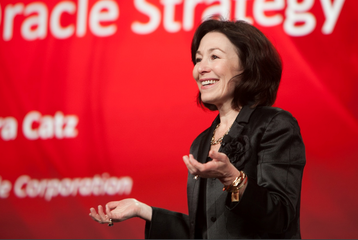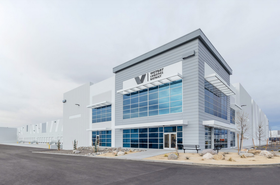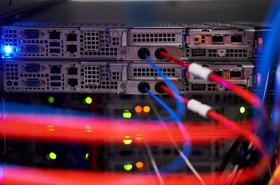Oracle has yet to sign any contracts related to the Stargate project, said CTO and chairman Larry Ellison during the company's Q3 2025 earnings call.
Ellison revealed that the company has seen $130 billion in remaining performance obligation (RPO) this quarter, despite not yet signing a contract with Stargate, adding that the company expects to sign its first "large Stargate contract fairly soon."
That RPO - contracted revenue for products or services yet to be delivered to the customer - is up from $97bn last quarter and up from $80bn last year, a 63 percent increase year over year (YoY).
Safra Catz, CEO of Oracle, said that the company expects this RPO to "help drive a 15 percent increase in Oracle's overall revenue in our next fiscal year beginning this June. And we expect RPO to continue to grow rapidly - as we look forward to signing our first Stargate contract - yet another big opportunity for Oracle to expand both its AI training and AI inferencing businesses in the near future."
Stargate is a $500 billion joint venture between OpenAI, Oracle, SoftBank, and Abu Dhabi's MGX to deploy a number of large data centers across the US. The partners are investing an initial $100 billion, with funding for the rest of the project yet to be secured. As a first step, Oracle is set to deploy 64,000 Nvidia GB200s for OpenAI at a data center in Abilene, Texas, which it leases from Crusoe.
Outside of Stargate updates, Oracle revealed its revenue for the quarter was $14.1 billion, up six percent YoY, while net income reached $2.9 billion, up 22 percent YoY. The previous quarter saw revenue of $14bn, and net income $3.15bn.
The Q3 revenue can be broken further down, with cloud revenue including IaaS and SaaS at $6.2 billion, up 23 percent YoY.
Meanwhile, earnings per share (EPS) rose 20 percent to $1.02, less than analyst expectations. Catz noted that the non-GAAP tax rate was 19.9 percent, higher than her 19 percent guidance, which lowered EPS by two cents. Oracle shares took a hit following the quarterly results, from $154.25 per share, to $139.28. They have since risen to around $144.
Catz noted that this quarter saw the company cross into triple digits for its total number of cloud regions, and expects its available power capacity to double this calendar year and triple by the end of the next fiscal year.
The company has also expanded its Oracle Database@ offerings, which launched with Amazon Web Services and Google last year and with Microsoft in 2023. That offering sees Oracle hardware colocated in other cloud providers' data centers. Catz said that the offering is now live in 18 cloud regions with the partners, and Oracle has "another 40 planned with Azure, Google, and AWS." Ellison estimated that this number could be reached in the next 12 months, though noted it was not entirely in Oracle's control.
Ellison added that the company's multicloud revenue is up 92 percent in the last three months alone.
Capex is predictably expected to remain high. This quarter saw $5.9bn in capex, with Catz adding that the company "front loaded some purchases into the quarter." Capex in the previous quarter was $3.97bn.
"Given the demand that you see in our RPO growth and the additional demand we see in our pipeline, I expect fiscal year 2025 capex will be a little more than double what it was last year at around $16 billion," said Catz. For comparison, Microsoft's capex for the last quarter alone was $22.6bn, and it said it would spend $80bn on AI data centers this year.
When asked why Oracle's capex is so much lower than its competitors, Ellison noted that the company can "start our data centers smaller than our competitors, and then grow based on demand." He also puts some of this down to the company's high degree of standardization and automation in its cloud, which gives the company "better margins" and lowers labor costs.
On the AI side, Oracle has seen significant demand, with GPU consumption for AI training growing 244 percent in the last 12 months.
Ellison added that the company is seeing a lot of demand for AI inferencing as well.
As a result, the company is launching a new AI inferencing offering. "We are connecting OpenAI ChatGPT, xAI Grok, and Meta Llama directly to Version 23ai of the Oracle Database with advanced vector capabilities. This new product, called the Oracle AI Data Platform, makes it easy for customers to use any of the world's leading AI models to analyze all of their private data—while keeping all their data private and secure," said Ellison.







